What Single Food Can You Survive On The Longest?
- Walid
- Aug 2, 2025
- 10 min read
Exploring the Concept of Single Food Survival
In an intriguing culinary experiment, some individuals attempt to survive on single food items for extended periods. The notion of "survive on single food" poses countless questions about nutrition, health, and the limits of human endurance. While the idea might sound extreme, it challenges our understanding of dietary needs and preferences.
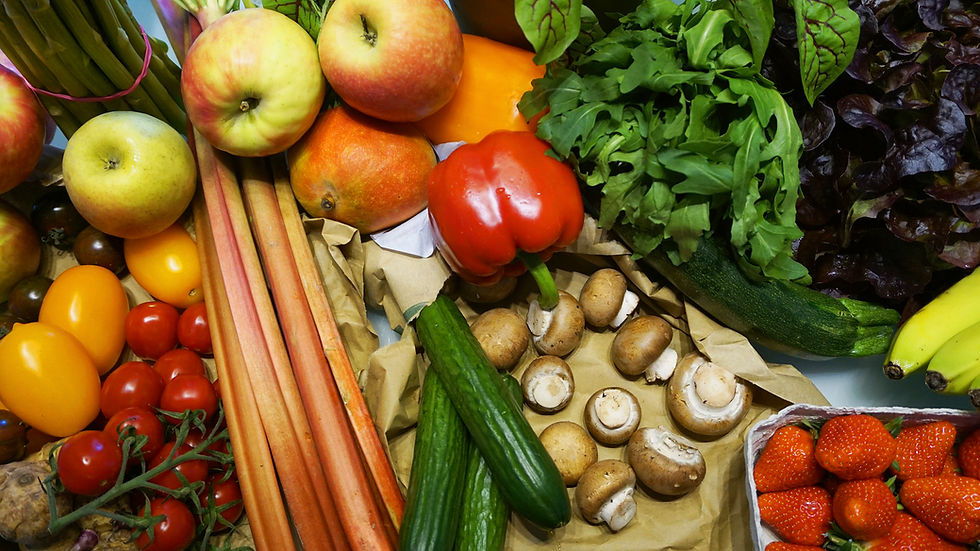
Historical Perspective
Historically, certain cultures have thrived on staple foods such as rice, corn, or potatoes. These single-source diets have demonstrated that humans can, indeed, survive on one primary food. However, the essential question remains: can one truly thrive and maintain optimal health while living off a singular food choice for the long haul?
Physical and Mental Challenges
Surviving on a single food can lead to various physical issues, such as nutritional deficiencies and a lack of energy. Additionally, the mental strain of monotony may result in a psychological challenge. Individuals might find themselves craving diversity in their meals or struggling with the social aspects of eating.
Monotony and boredom
Nutritional deficiencies
Social isolation during meals
To provide clarity, examining what various food items contain can enlighten this debate. Below is a table comparing vital nutrients found in common staples.
Food Item | Carbohydrates | Proteins | Fats |
Rice | 45g | 4g | 0.4g |
Potatoes | 37g | 2g | 0.2g |
Beans | 40g | 21g | 0.9g |
Final Thoughts
Ultimately, while it is feasible to survive on single food items, the potential health risks must be weighed against the limited variety of nutrients one could acquire. Individuals should consider the long-term repercussions of such a diet.
Want to explore more? Head over to our homepage and see what we have to offer!
Consult a nutritionist before attempting a single food diet.
Monitor your health closely during such experiments.
Be prepared for the psychological challenges that may arise.
"Survival on a single food item not only tests our physical limits but also reveals much about our nutritional understanding."
Top Nutritional Choices to Live On
In our increasingly fast-paced lives, the idea of "survive on single food" can seem daunting. Nonetheless, certain foods not only offer nutritional value but can also sustain you for extended periods. By choosing wisely, you can ensure your body receives essential nutrients, even if limited to singular options. In this discussion, we will explore a few top contenders that could serve as your lifeline in tough times.
Check out our selection of dehydrated red bell peppers that are great in stews, soups, or as a quick meal accompaniment.

Rice: A Staple Powerhouse
Rice is renowned worldwide as a food with an incredible ability to 'survive on single food.' It is rich in carbohydrates, providing a primary energy source, and can be easily stored for long periods. Incorporating rice into your diet ensures that you're getting a reliable supply of energy, essential for maintaining your daily activities.
Beans: Nature's Protein Source
If you're considering what to rely on to 'survive on single food,' beans are a fantastic option. Packed with protein and fiber, they help to keep you feeling full and satisfied. Additionally, beans are a great source of vitamins and minerals that contribute to overall health. Whether canned or dried, they've a long shelf life and can be used in various recipes.
Rice - Carbohydrate-rich and energy-boosting
Beans - High in protein and fiber
Potatoes - Versatile and filling
These options can serve as excellent staples for a nutritionally sound diet. The table below summarizes their distinct advantages:
Food | Benefits | Shelf Life |
Rice | High energy source | Indefinite (if stored properly) |
Beans | Protein and fiber-rich | Up to 10 years (dried) |
Potatoes | Rich in vitamins and minerals | 1-2 months (if kept in a cool, dark place) |
Why Choose These Foods?
Opting for rice, beans, or potatoes will help you ensure that you can 'survive on single food' while providing essential nutrients necessary for longevity and health. This strategy simplifies meal planning during uncertain times.
"Choosing the right single food can make all the difference for your survival and well-being."
Benefits of a Monodiet for Your Health
Have you ever pondered the idea of a monodiet? As a method to survive on single food, this unique dietary choice offers several health benefits. By focusing on one particular food item for a set period, individuals often discover enhancements in digestion, weight loss, and even increased mental clarity. This approach not only simplifies meal planning but can also help you reconnect with your eating habits and preferences, making you more conscious of your nutrition.
Check out our selection of dehydrated red bell peppers that are great in stews, soups, or as a quick meal accompaniment.
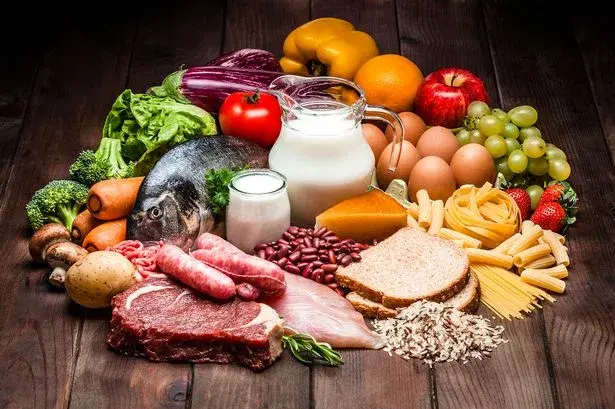
Detoxification and Simplicity
One significant advantage of embracing a monodiet is the detoxification process that often occurs. When you consume one type of food, your body can focus on eliminating toxins without the confusion of mixed ingredients. Furthermore, simplicity in meals means less decision fatigue. Imagine eliminating the stress of what to eat every day. Just think about how liberating it can feel to survive on single food for a while!
Nutritional Focus and Efficiency
With a monodiet, you can concentrate on the nutritional value of one food. This focus helps you understand the benefits of that food deeply. For instance, if you chose bananas, you would become familiar with their potassium content and energy-boosting features. By understanding what you consume, you can become more proficient in choosing your long-term dietary habits.
Improved digestion
Weight loss benefits
Enhanced energy levels
Better understanding of food
A monodiet can certainly shift your perspective on food, but it’s essential to approach it wisely. Consult a healthcare provider before making drastic changes.
Food | Benefits |
Bananas | Rich in potassium, provides energy |
Rice | Easily digestible, gluten-free carbohydrate |
Potatoes | Sustaining energy source, rich in vitamins |
Health Improvement and Awareness
Embracing a monodiet can also lead to heightened health awareness. You'll likely become more in tune with how different foods affect your body, physically and mentally. As you survive on single food, it's essential to listen to your body’s feedback, adjusting as necessary.
Increased mindfulness about eating
Potential for improved discipline
Greater awareness of cravings
“A monodiet can teach us more about our eating habits than we ever expected.”
Challenges Faced While Surviving on One Food
Surviving on a single food source can pose extraordinary challenges to the human body and mind. While it may seem like a straightforward diet, limited nutrition from one type of food can lead to deficiencies, mental fatigue, and an array of health complications. The lack of variety deprives the body of essential vitamins and minerals, hindering overall well-being. Additionally, the monotony of eating the same thing daily can greatly affect motivation and emotional health.
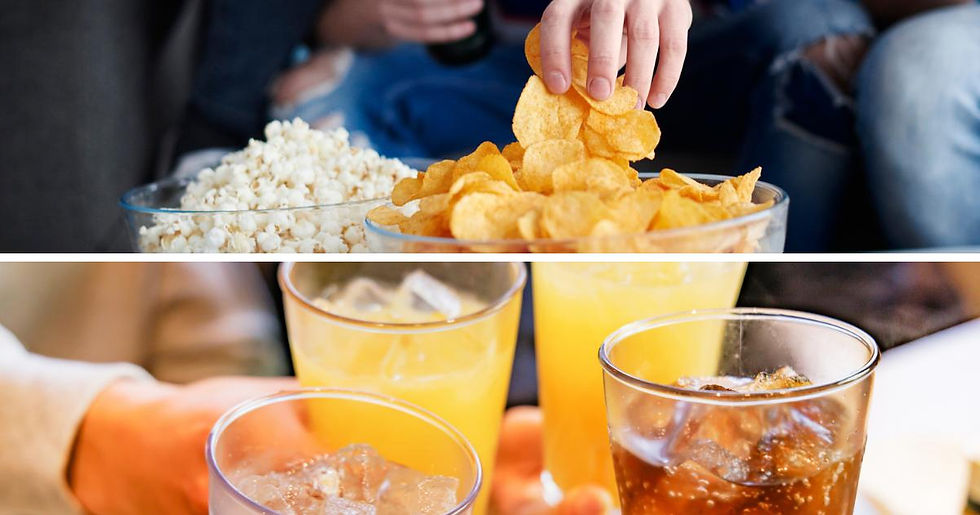
Nutritional Deficiencies
When you choose to survive on a single food, nutritional deficiencies can quickly arise. This can lead to weakened immunity, fatigue, and other serious health concerns. A balanced diet is crucial for providing the body with necessary macro and micronutrients, which are often lacking when one food is consumed for an extended period. For instance, lack of specific vitamins can lead to a variety of complications, highlighting the importance of dietary variety.
Mental Fatigue
Eating the same food every day can lead to mental fatigue. While physical health is a primary concern, our mental state plays a significant role in overall survival. Feelings of monotony and dissatisfaction can impact your mood and motivation. This psychological aspect can make it difficult to continue overcoming the challenges associated with a restricted diet.
Nutritional deficiencies in vitamins and minerals
Physical health deterioration
Mental fatigue and emotional effects
In understanding the struggles of those attempting to survive on a single food, it’s essential to address health complications. Below is a simplified overview of the impacts:
Impact | Description |
Nutritional Deficiency | Lack of essential nutrients from varied diet |
Mental Exhaustion | Emotional strain from monotony |
Physical Ailments
Physical ailments are common when trying to survive on a single food. The risk extends beyond just feeling tired; it can manifest into more serious conditions such as gastrointestinal issues or weakened bones. Understanding these risks can help in making informed dietary choices.
Weak bones due to calcium deficiency
Gastrointestinal issues from lack of fiber
“A varied diet is the cornerstone of good health; one food can hardly provide what the body needs.”
Expert Tips for Choosing Your Single Sustenance
When you're faced with the challenge of learning how to survive on single food, strategic decisions are paramount. Choosing the right sustenance can dictate not only your physical health but also your mental well-being. You must consider nutritional content, availability, and your personal preferences to ensure that your choice becomes a reliable food source for your needs.
Check out our selection of dehydrated red bell peppers that are great in stews, soups, or as a quick meal accompaniment.
Understand Nutritional Balance
Before you commit to one food item, it's essential to analyze its nutritional profile. Not all foods provide a complete nutrient spectrum, so deliberate planning can help you survive on single food. For instance, while rice is a common staple, it lacks adequate protein; therefore, pairing it with legumes could create a more balanced diet.
This is just one of many great blogs we have—explore more right here.
Consider Shelf Life
The shelf life of your chosen sustenance is another deciding factor. Perishable foods may not be suitable for prolonged survival scenarios. Long-lasting food items like dehydrated fruits or canned vegetables offer both convenience and a longer storage duration, making them excellent options.
Want to make your cooking healthier? Try our dehydrated cabbage for quick cooking and retaining nutrients.
Research Proper Preparation Methods
How you prepare your food can also influence your health. Cooking methods can affect nutrient retention. Steaming vegetables, for instance, can preserve vitamins better than boiling. Considering these factors will assist you in your aim to survive on single food effectively.
Steaming: Retains nutrients
Roasting: Enhances flavor
Raw consumption: Preserves enzymes
“Choosing wisely can make the difference between thriving or merely surviving on single food.”
For camping or outdoor travel, dehydrated spinach is lightweight and easy to carry without compromising on nutrition.
Lightweight and efficient in emergency food storage or outdoor cooking, drying chili wakes up the taste buds with ease.
Dehydrated fine shallots provide a convenient and long-lasting shallot flavor when preparing instant seasoning packets.
Add some dehydrated garlic granules to stir-fries, stews or homemade sauces for an instant flavor level boost.
Meal Planning Strategies for Monodiet Success
Many people are intrigued by the concept of surviving on single food. Whether it's for health reasons, weight loss, or simplicity, adopting a monodiet can be a challenge. To thrive on just one type of food, adequate planning and strategic meal preparation are essential to ensure your nutritional needs are met while also keeping meals enjoyable.
Understanding Nutritional Needs
Before diving into a monodiet, it's crucial to understand what your body requires. Each food has its unique nutritional profile, and surviving on single food means you need to make sure it offers enough vitamins, minerals, and macronutrients for a balanced intake. Take time to research and consult a nutritionist if needed to ensure your chosen food supports your health.
Meal Variation Techniques
Sticking to one food doesn't have to be monotonous. Incorporating different cooking methods can enhance your experience and make the process more enjoyable. Try baking, boiling, or sautéing your single food to create diverse flavors and textures, helping you survive on that single food without growing weary of it.
Optimal food selection
Regularly rotate cooking methods
Season mindfully with herbs
Planning a week’s worth of meals can significantly help. Below is a sample meal table that outlines various ways to prepare your single food throughout the week.
Day | Preparation Style |
Monday | Steamed |
Tuesday | Stir-fried |
Wednesday | Baked |
Thursday | Raw |
Friday | Pureed |
Stay Motivated
Keeping your motivation high is vital for long-term success. Connect with others who have undertaken similar dietary challenges. Share experiences and tips for adjusting to life while trying to survive on single food. Motivation leads to creativity, which can help you diversify your approach.
Join online forums
Start a food diary
Set achievable goals
“Surviving on a single food not only tests your willpower but also offers incredible insight into your relationship with food.”
Conclusion: Is Surviving on One Food Practical?
Many people wonder if it's truly possible to survive on a single food item for an extended period. While the idea of subsisting solely on one food might seem appealing for simplicity, it raises significant concerns about nutrition and health. Surviving on a single food can lead to deficiencies, as most foods lack a complete nutrient profile. Hence, a varied diet is vital for maintaining optimal health and wellbeing.
The Nutritional Dilemma
The core issue with relying solely on one food type is the lack of essential vitamins and minerals. For instance, although bananas provide potassium, they fall short on protein and healthy fats essential for bodily functions. Consequently, if one attempts to survive on a single food, they may encounter fatigue, weakened immunity, and other health complications over time.
Potential Candidates for Single Food Survival
In theory, some foods come closer to being complete nutrition sources, but none can fulfill all dietary needs. Here are a few contenders:
Potatoes
Eggs
Rice
Food | Nutrients Provided | Deficiencies |
Potatoes | Carbohydrates, Vitamin C | Protein, Fat, Vitamins A & B12 |
Eggs | Protein, Healthy Fats | Carbohydrates, Fiber, Vitamin C |
Rice | Carbohydrates | Protein, Vitamins A & C |
Conclusion on One Food Survival
Ultimately, while certain foods can be regarded as basic survival sources, they cannot encompass all dietary requirements. Even if one decides to survive on a single food for a short period, it's crucial to include a diverse range in the diet eventually.
Want to explore more? Head over to our homepage and see what we have to offer!
Consult a nutritionist before making drastic dietary changes.
Consider the long-term health implications of such choices.
Always prioritize a balanced diet for overall well-being.
“Don't sacrifice your health for simplicity; balance is key.”
This is just one of many great blogs we have—explore more right here.
FAQ: Common Questions About Single Food Diets
Many wonder how to survive on single food diets, given their restrictive nature. These diets often focus on consuming just one type of food for a period, which can lead to both questions and concerns. Can the body really thrive on such a limited selection? What are the potential risks? Understanding these common queries can help those considering this journey.
Can You Get All Nutrients?
It's crucial to note that surviving solely on one food is challenging. Most single food diets lack diversity in nutrients, leading to possible deficiencies. For example, while a diet limited to bananas provides potassium, it may fall short on proteins and essential fats, necessary for overall health. Therefore, consulting with a healthcare professional before undertaking such a diet is vital.
If you are looking for low energy consumption and high shelf life ingredients, dehydrated vegetable products are not to be missed.
How Long Should You Follow a Single Food Diet?
Experts recommend not to survive on single food diets for extended periods. Short-term diets can sometimes lead to quick weight loss, but long-term adherence can spell disaster for nutritional health. A sustainable approach involves balancing different food groups to ensure your body receives adequate nutrition.
What About Health Risks?
Surviving on a single food may present numerous health risks. These risks can range from energy depletion to long-term health complications. Individuals sticking to minimalist diets should monitor their physical well-being closely and adjust their intake as necessary.
For camping or outdoor travel, dehydrated spinach is lightweight and easy to carry without compromising on nutrition.
Potential for nutrient deficiencies
Short-term weight loss
Not suitable for everyone
Risk of fatigue
Nutritional imbalances
Potential metabolic issues
Consult a professional to ensure you maintain a balanced diet if you're considering single food options.

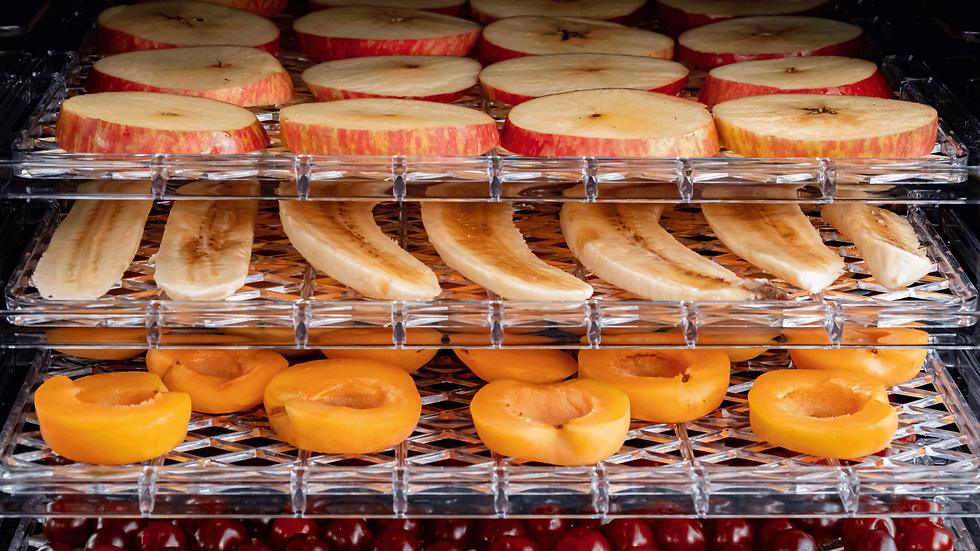

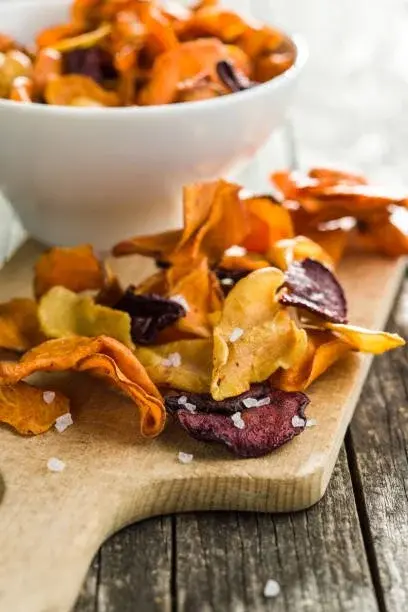
Comments